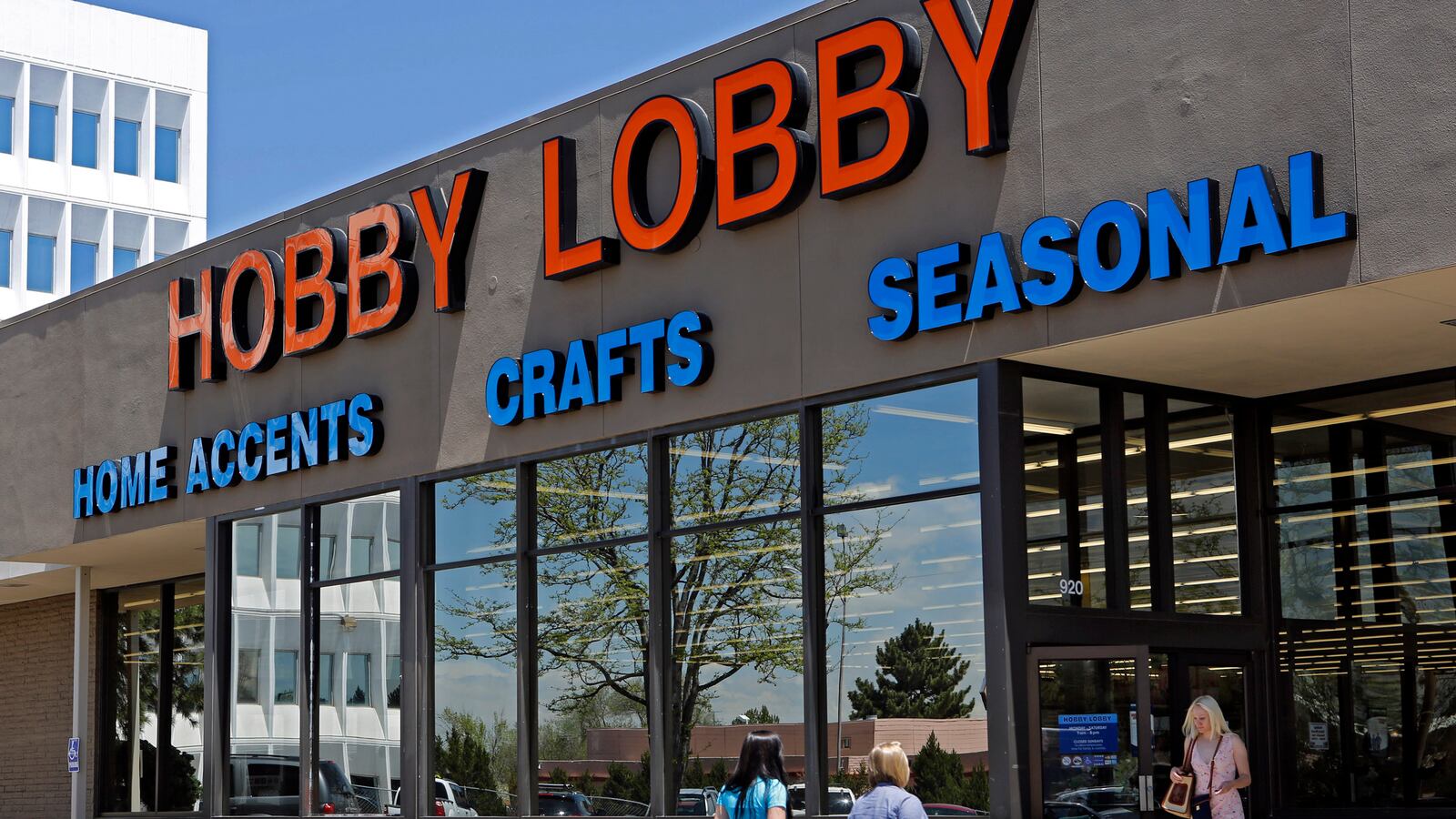
The Supreme Court just can’t seem to quit the Affordable Care Act.
On Tuesday, it announced it would hear challenges to the law’s “contraception mandate,” which requires employers that provide health insurance to include contraceptives in their plans, including birth control pills and emergency contraception. At stake is whether for-profit companies can be exempted from the mandate because of their owner’s religious beliefs.
This controversy centers on a lawsuit by Hobby Lobby, an arts & crafts chain whose owners—David Green and his family—are devout Christians who believe life begins at conception and that using certain kinds of birth control violates their religious beliefs.
Obamacare contains an exemption for churches and other religious nonprofits, but the Greens want it extended to for-profit companies like their own, who are otherwise required to include FDA-approved contraceptives in their health insurance plans. They claim that the requirement would “substantially burden” their ability to practice their religion.
This gets to the core of the lawsuit. Hobby Lobby isn’t just fighting for an exemption from the contraception mandate, it’s arguing that, as a business, it shares in its owners religious beliefs and has its rights as a corporate person protected under the Religious Freedom Restoration Act, a 1993 law mandating that strict scrutiny be used when determining if the free exercise clause of the First Amendment has been violated. By requiring companies to cover women’s contraception, Hobby Lobby argues, the federal government is violating their religious rights. In short, the Greens are asking the court to classify for-profit corporations as having religious consciences.
It should be said that the Greens aren’t Catholics; they’re evangelical Christians who don’t share Catholicism’s doctrinal opposition to birth control. Condoms and diaphragms aren’t an issue. Instead, the Greens—who see fertilized eggs as persons—object to Plan B and other forms of emergency contraception, which they believe prevent embryo implantation in a woman’s womb, and are tantamount to abortion.
But medical science is clear: emergency contraception is not an abortifacient. As explained in an amicus brief by Physicians for Reproductive Health, pregnancy begins when a fertilized egg attaches itself to the uterine lining, a process that occurs within five to nine days of sexual intercourse, if the egg is fertilized. “Emergency contraception,” notes the organization, “refers to a drug or device that is used after intercourse, but before pregnancy, to prevent pregnancy from occurring.” Abortifacients, by contrast, are used to terminate an existing pregnancy.
According to the brief, the two FDA-approved forms of emergency contraception—Plan B and “ella”—work by preventing, disrupting, or prohibiting ovulation, which stops fertilization altogether. In the doses approved for contraceptive use, neither terminates a pregnancy.
This is important. For Catholic groups, who oppose all contraception regardless of circumstance, the science is irrelevant. The mechanism of birth control is less important than the theological commitment to all pregnancies. But evangelicals—like the Greens—are in a different boat. Their objection depends on the science of pregnancy. If what’s true—emergency contraception doesn’t cause abortion—contradicts their beliefs, then what basis do they have for the objection? It’s fine if the Greens oppose abortion out of their sincere religious convictions—they can believe whatever they want—but that doesn’t give them license to redefine abortion (or contraception) to fit those beliefs.
Indeed, allowing them the privilege opens the door to a whole host of actions that would burden the liberty—religious or otherwise—of employees or customers. In a world where corporations have First Amendment protections for their religious beliefs, can they win exemptions for any law they disagree with? If Congress passes the Employee Non-Discrimination Act, can Hobby Lobby decline to follow its dictates—and say, refuse to hire to gays and lesbians—out of its sincere religious beliefs? Could it refuse to hire blacks out of a belief that they are cursed by God?
This is all on top of the implications for employees. If you work at Hobby Lobby, could the company require you to attend Bible study? What if your employer is a Christian Scientist? Could they refuse to provide health insurance at all, citing their religious beliefs? These become real scenarios if the Court decides that belief trumps all other considerations, including actual fact.
Over the last few years, corporations have accumulated more and more power, under the guise of “freedom.” At the moment, employers can fire employees for their political views, require employees to attend political rallies, and even volunteer for candidates they disagree with. Hobby Lobby is asking the Supreme Court to extend this even further, to forcing employees to choose health insurance that matches the religious preferences of their employers.
All of this raises important questions. Is this about securing religious liberty, or expanding it for a particular group? And if it’s the latter, is Hobby Lobby fighting for “liberty,” or is it demanding the right to oppress?






